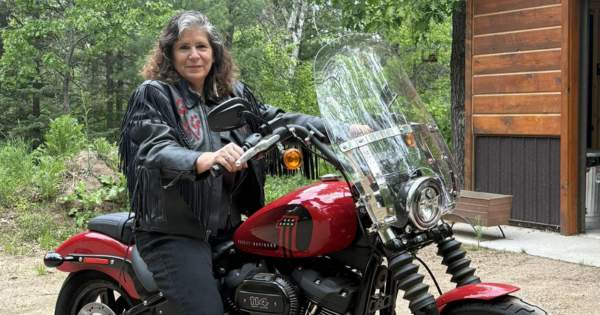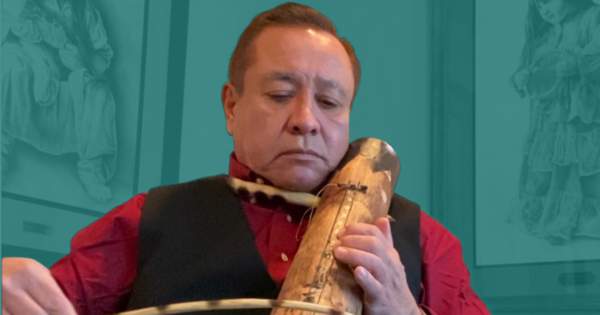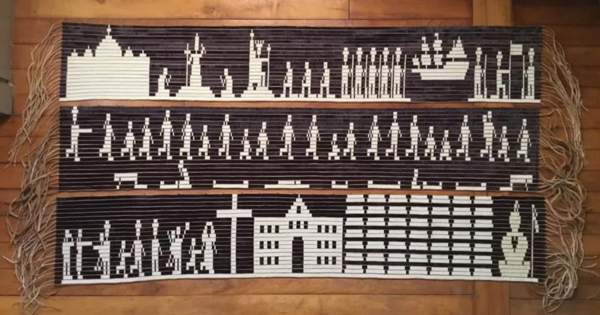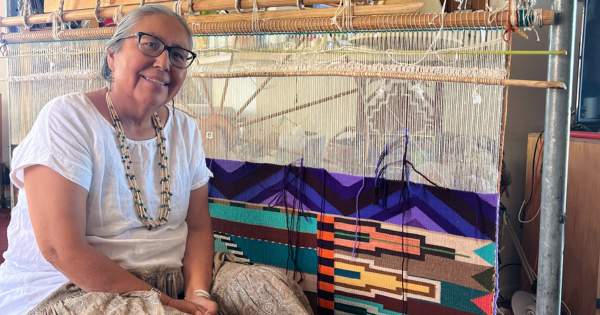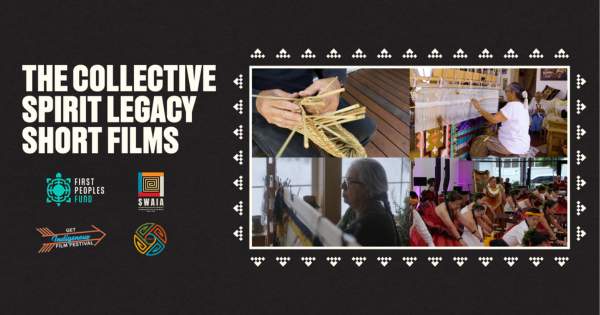
National Folklife Network Visits Lakota Territory
Last month, we hosted and welcomed cultural artists, who are known for their work in folklife and traditional arts, from across the U.S., to Lakota Territory. The first such gathering of the National Folklife Network – a new collaboration among the First Peoples Fund, the National Endowment of the Arts, Southwest Folklore Alliance and the Alliance for California Traditional Arts – attendees were exposed to Lakota values, culture and foods. The purpose of the National Folklife Network is to provide resources to uplift, connect, and nurture artists and cultural bearers from seven regions of the U.S.
Emmy Her Many Horses (Sicangu/Oglala Lakota), Program Manager for Special Initiatives for First Peoples Fund says, ”The National Folklife Network enabled First Peoples Fund to host about 30 artisans, some traveling from as far away as the San Juan Islands.” These visiting artists experienced Lakota lands for the first time in their lives, which also served as a teaching moment for them as guests to see how creative art is present, vibrant and alive.
“Grounding them in our culture and values is necessary for the network to understand and process what folklife means to us. While the term ‘folklife’ can be problematic,” Her Many Horses says, “there are efforts to make sure folklife is inclusive of all.”
To get these artists grounded in our culture, they saw the social-cultural-economic experience of our people living in and between Rapid City and Pine Ridge, and how that influences our creative pursuits. The network members also found similarities and differences in the folklife each comes from, including the challenges of the meaning behind folklife, which for Native communities can be polarizing to view our lifeways as arts and crafts, Her Many Horses said.
Even so, this is where First Peoples Fund comes in as a nonprofit to facilitate these hard conversations with the network but also empower the voices of our artists and cultural bearers.
“We thought deeply about what local traditions we could bring into the space, that are things that we still do, but they're not taught in a formal class structure,” Her Many Horses said. “Typically, when someone's learning them. They're taught when you go to your grandma's house, and she says, ‘Hey, come here, help me with this.’ And you're there and you're learning naturally, through intergenerational transference of knowledge.”
From their visit to our motherland, one member from Memphis Voices, Corey Travis, wrote a reflection piece about experiencing Lakota folklife through intergenerational transference of knowledge.
“As Emmy and others, we encountered and they poured out every ounce of their heritage, family, and culture with us through purposeful experiences, food, and activities I could only just sit back and take it all in. To be reminded of what the Native American people went through, suffered, and experienced only to see the still lingering lasting effects both positive and negative was so grateful to feel and be a part of. Upon arriving I met the sweetest lady in the lobby of the hotel named Diane from Idaho who hosts the biggest sheep festival in her hometown and boy we were joined at the hip for the rest of the trip! We and my other Memphis Voices hung out every day and enjoyed everything about Rapid City and we even went to visit Mount Rushmore and the Crazy Horse Memorial. Both of those experiences were one of a kind as well. The NFN workshops began and boy did they open up thoughts and provoke our thinking! We were put into groups and the first question asked was, "Who are you and who are your people?" WHOA, what a question that I never have even asked myself before and to hear the answers from the others took my group into a deep conversation, highlighting who we are and where we come from. The exercise of trying to wholistically define culture, folklife, culture bearers, and more was eye-opening. The community connectors and voices that were chosen were from heaven. Hearing the talents, community work, and passion of each person was mind-blowing. It makes you think that there are really amazing people doing some extraordinary work and are extremely unnoticed and not represented at all in many ways which is sad and somewhat unjust. The connections made were priceless and ones that I will cherish for a lifetime. Overall, being chosen to have this opportunity has been something that changed the way I looked at a lot of the work I do and the cultural work of others I know and connect with. It made me so excited to come back to Memphis and think of ways to enhance the awareness of folklife in Memphis and afar,” - Corey Travis

